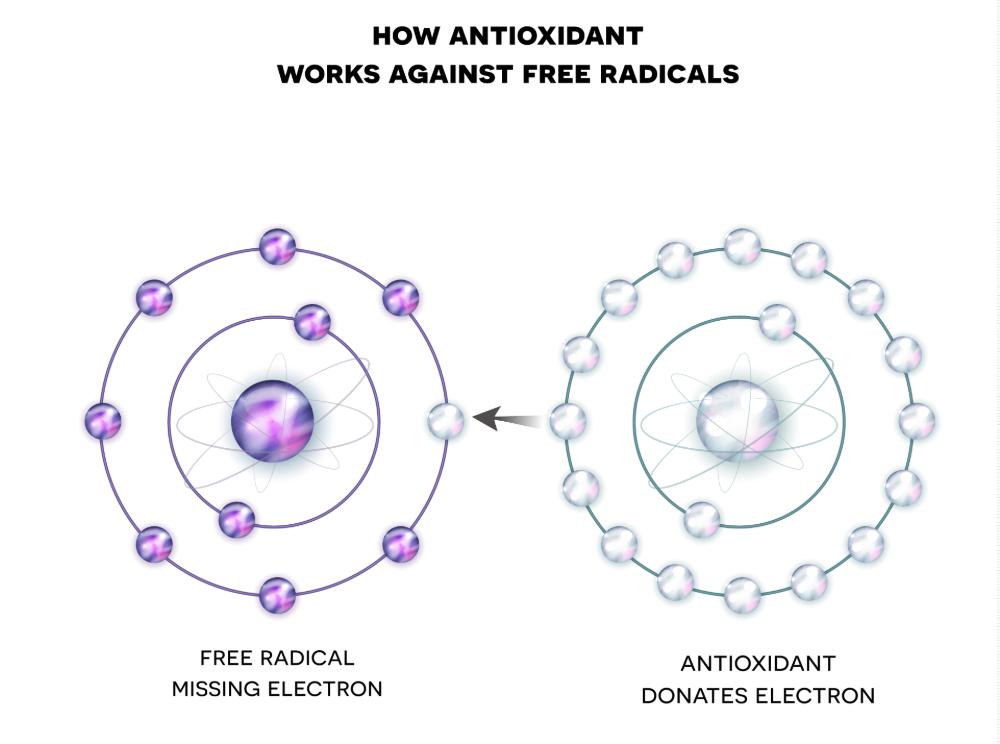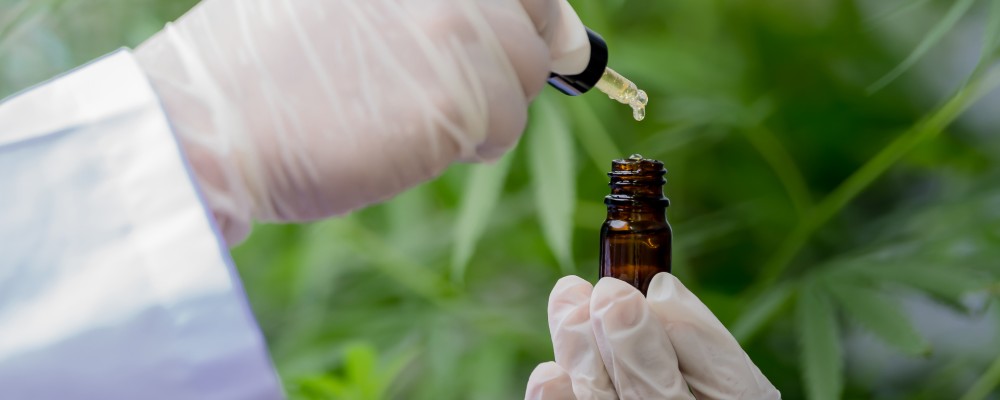The Antioxidant Properties Of CBD
We see oxidation reactions occurring around us all the time, whether it is the rusting of iron or the burning of gas on our hobs.
Our bodies also undergo oxidation reactions constantly, and just like in the world outside our bodies, they are responsible for both good and bad outcomes.
In the same way that we can prevent the rusting of a bridge by painting it, we can also fill our bodies with substances to prevent our bodies from ‘rusting’.
In our current 21st century lifestyles that are affixed on social media and staring at screens, we are probably even more likely to see products stating they are antioxidants than seeing oxidation in the real world.

The word antioxidant has been thrown at a myriad of substances in the claims that they are healthy. Dark chocolate, strawberries, kale and now, CBD.
CBD is a health and wellness supplement that is being touted for its potential antioxidant properties.
It is available in a range of products from CBD oil and CBD edibles/CBD gummies that can be ingested, as well as in CBD creams that can be applied topically.
We will look at what an antioxidant is, and what studies have been conducted into CBD concerning its role in the body as an antioxidant.
What Is An Antioxidant?
Quite simply, an antioxidant is a substance that prevents an oxidation reaction from occurring. The question really should be – What is an oxidation reaction?
Confusingly, an oxidation reaction doesn’t have to be a reaction that involves oxygen. It is just when a molecule loses electrons and passes them over to another molecule.
The passing of electrons within the human body when two molecules interact is the basis behind the science of our very existence. It occurs when our DNA is formed, when proteins are built from amino acids and even when thoughts form in our minds.
We want our bodies to work in a stable way, and for our bodies to be stable, the molecules that exist within it must be stable. Molecular stability is brought about by our molecules having the right number of electrons.

Sometimes, a molecule within our bodies will lose an electron when it isn’t supposed to, and the resulting unstable products formed are called free-radicals.
These free-radicals are electrically charged and highly reactive molecules that are wildly unpredictable.
They need to immediately fill the gap of the lost electrons and can do so by reacting with stable and essential parts of our body, such as our DNA.
Because of this, free radicals existing within the body are dangerous and need to be removed.
This is where antioxidants are required for our body. They are stable molecules that will react with a free radical, giving it an electron and subsequently result in it not being harmful anymore.
Common Antioxidants Are:
- Vitamin C
- Vitamin E
- Flavonoids
The primary purposes of these compound within the body serve many different functions. They don’t exist solely as antioxidants, but they are able to act as antioxidants when needed to.
Full spectrum CBD products contains many different flavonoids, and is therefore considered to contain a good amount of antioxidants aside from the CBD content.
What Studies Have Been Conducted Into CBD Being An Antioxidant?
A patent (Patent 1999/008769) was awarded to the US Department of Health and Human Services (HHS) for research into the use of cannabinoids as antioxidants in 1999.
The aim of the research patent was to discover a new class of antioxidants that could reduce damage caused by hypoxia and glutamate toxicity in the brain.
The cause for the research into cannabinoids is because they are known to easily permeate the blood-brain barrier, something that not all antioxidants can do.
The theory behind the research was that if an antioxidant was able to permeate the blood brain barrier then they could act to reduce the toxins (free radicals) that damage important cellular structures inside the brain and neurons, resulting in a positive outcome about CBD’s potential use within a wide range of neurodegenerative conditions.

In these experiments they discovered that CBD acted in a unconventional way, as most neuroprotectants acted on the NMDA receptor, whereas CBD didn’t.
So, in the process of these experiments they were able to conclude that CBD is in a new class of compounds that prevents oxidative stress, if it is administered in therapeutically effective amounts.
They also concluded that cannabinoids in general are compounds that are readily oxidised, making all of them good antioxidants.
In tests where they compared CBD with known antioxidants such as α-tocopherol, BHT or Vitamin C, they conclude that CBD and BHT have similar antioxidant abilities, both of which were better than Vitamin C and α-tocopherol in the neuronal test culture.
Conclusion
The formation of antioxidants is a common part of the biological process and the removal of them is just as common. Without antioxidants, the free radicals formed would destroy our bodies quickly. However, we do need free radicals to form to rid our bodies of dangerous bacteria. It is all about balance.
So, whilst we know that CBD is an antioxidant. If you live a lifestyle in which you are constantly consuming fast food, alcohol, cigarettes. If you use sunbeds too much or are constantly breathing in pollution from the air, then just by consuming some CBD you are not going to improve your body at all.
It is all about living a healthy lifestyle, where exercise and healthy foods are balanced. This is the way in which most diseases are prevented because your body exists in a state of healthy equilibrium.
[shop_slider title=”Shop CBD Products” count=”5″ show=”best-selling” category=”cbd-products” orderby=”date” order=”DESC”]
The post Is CBD An Antioxidant? first appeared on CBD Village UK.
